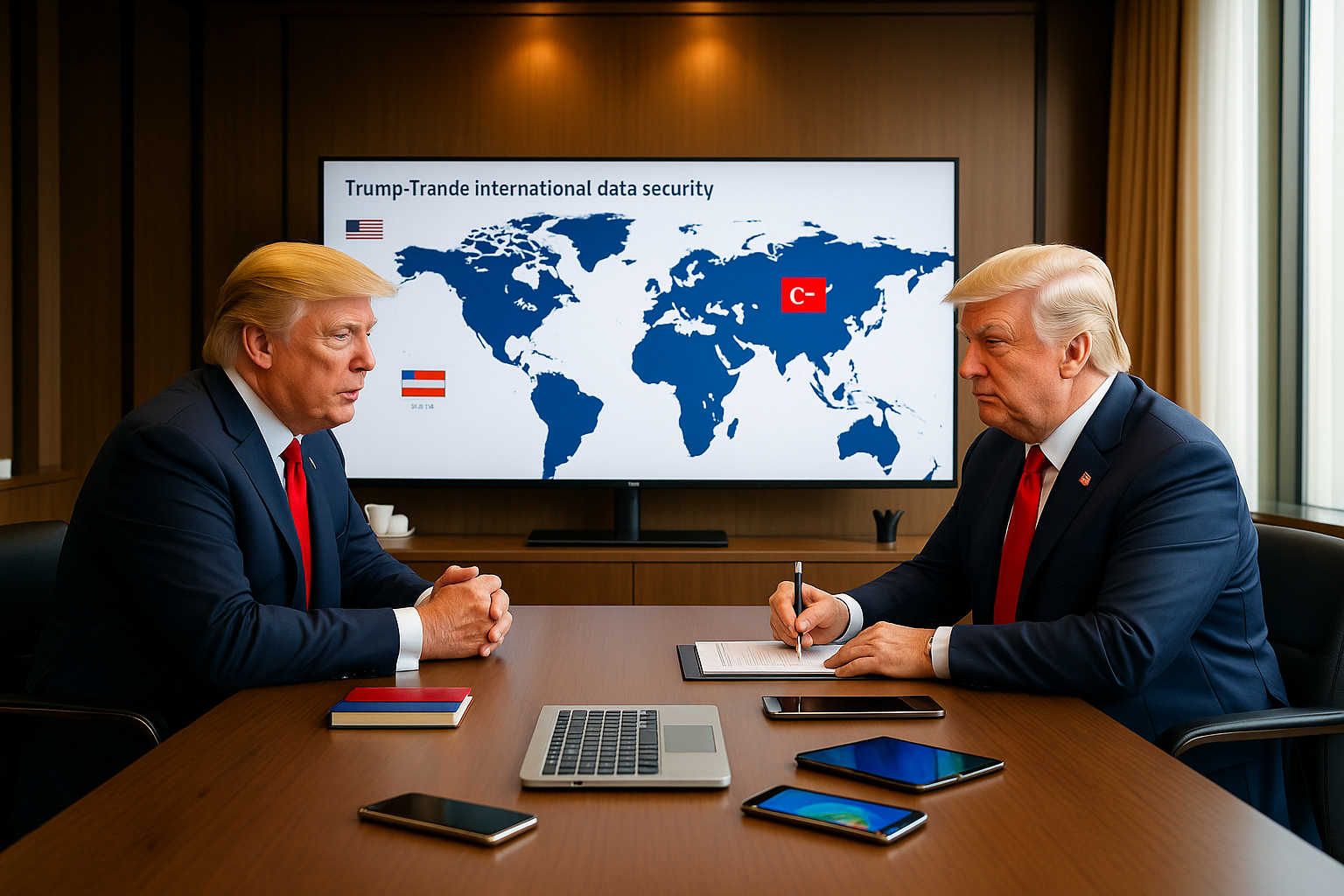The Future of TikTok’s US Ownership: Navigating Trump and Xi’s Roles
The discussions about TikTok’s ownership in the United States highlight the complex intersection of technology, national security, and international relations between the US and China. The platform remains a focal point in broader tensions, with negotiations reflecting political and economic challenges.

Background: Trump’s National Security Concerns and Xi’s Protective Stance
The Trump administration pushed for ByteDance, TikTok’s parent company, to divest its US operations over fears that American user data could be accessed by the Chinese government. Executive orders demanded a sale to an American company, but legal challenges and resistance complicated this effort.
China, under President Xi Jinping, views ByteDance as a strategic asset representing its digital influence. The government has resisted any forced sale or loss of control, emphasizing the importance of protecting its technological assets. This stance complicates negotiations and reflects broader geopolitical dynamics where technology symbolizes national power.
The Proposed Ownership Framework
Current discussions propose a structure allowing TikTok to operate in the US with enhanced oversight and data security measures, while maintaining some level of Chinese ownership. This approach aims to address US security concerns without requiring a full divestment, which could set a precedent affecting other Chinese tech firms.
The framework attempts to balance competing interests by strengthening US regulatory control without severing ByteDance’s ties entirely. This nuanced solution reflects the challenge of regulating multinational technology companies operating across jurisdictions with conflicting political priorities.
Political Involvement and Upcoming Negotiations
Treasury Secretary Scott Bessent announced a “framework” agreement outlining potential commercial terms for TikTok’s US ownership. The deal remains unfinished and is expected to be a key topic in upcoming discussions between former President Trump and President Xi Jinping, highlighting the high-level political engagement shaping this issue.
ByteDance faces a September 17 deadline to divest its US operations or risk a shutdown, a date extended multiple times amid legal and diplomatic wrangling. The outcome of these talks will influence not only TikTok’s future in the US but also broader policies on foreign ownership of critical digital infrastructure.
Commercial and Diplomatic Stakes
US companies such as Oracle and Tesla have shown interest in acquiring TikTok’s US operations, underscoring the commercial stakes involved. However, the resolution depends largely on political will and diplomatic negotiation.
The evolving ownership deal illustrates how global tech companies must operate amid geopolitical tensions, balancing national security concerns with international diplomacy.
Frequently Asked Questions
What role did Trump play in the TikTok ownership issue?
Trump’s administration initiated executive orders demanding ByteDance divest its US operations due to national security concerns about data privacy and Chinese government influence. These orders faced legal challenges, setting the stage for complex negotiations.
What is China’s position under Xi Jinping?
China views ByteDance as a strategic digital asset and has resisted any forced sale or loss of control over TikTok’s US operations, complicating negotiations and reflecting concerns about sovereignty and technological dominance.
What does the proposed framework involve?
The framework suggests a hybrid model where TikTok continues operating in the US under increased regulatory scrutiny and data security measures, without fully severing ByteDance’s ownership. This approach aims to balance US security concerns with China’s desire to maintain control.
What are the potential outcomes of the Trump-Xi discussions?
The talks will determine whether the framework becomes binding or if TikTok faces a forced exit from the US market. The resolution will influence future policies on foreign ownership of technology platforms and set precedents for handling similar disputes.
Conclusion
The future of TikTok’s US ownership remains a complex issue shaped by competing interests between the US and China. The involvement of Trump and Xi highlights how technology serves as a battleground for geopolitical influence, where data privacy, economic power, and sovereignty intersect. The proposed framework reflects a pragmatic attempt to balance these tensions, with the outcome poised to impact TikTok’s presence in the US and broader regulatory approaches to global tech companies.
For more details, read the original article on Search Engine Land.
As noted by the article’s author, “The deal is seen as a breakthrough in US-China trade and technology relations,” highlighting the significance of this development.













.png)

